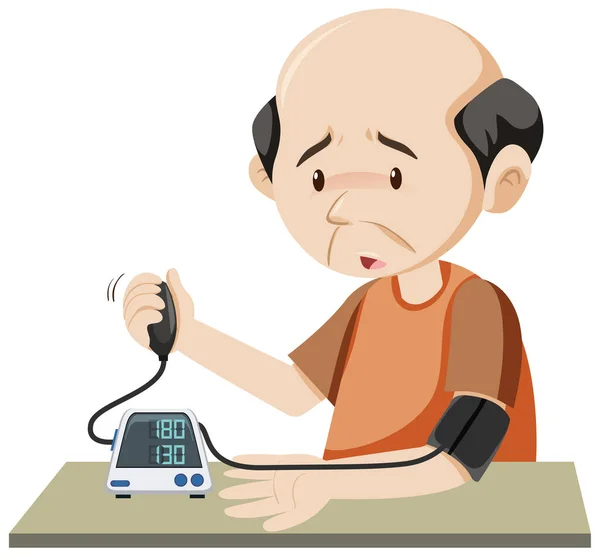
Adelekan Oluwaseun Ojo.
Blood pressure is one of the most commonly measured health metrics. It’s a key indicator of how well your heart and circulatory system are functioning. Understanding what blood pressure is, how it’s measured, and what the numbers mean can help you take better care of your cardiovascular health.
What is Blood Pressure?
Blood pressure is the force exerted by circulating blood on the walls of blood vessels. It’s generated by the pumping action of the heart and varies throughout the day depending on activity levels, emotions, and other factors.
When you have your blood pressure measured, two numbers are recorded:
- Systolic Pressure: The higher number, which represents the pressure in your arteries when your heart beats (contracts) and pumps blood.
- Diastolic Pressure: The lower number, representing the pressure in your arteries when your heart is at rest between beats.
For example, a blood pressure reading of 120/80 mmHg (millimeters of mercury) means the systolic pressure is 120, and the diastolic pressure is 80.
Normal vs. Abnormal Blood Pressure
The American Heart Association (AHA) provides the following general categories for blood pressure levels in adults:
Normal: Less than 120/80 mmHg
Elevated: Systolic between 120-129 and diastolic less than 80 mmHg
Hypertension (Stage 1): Systolic between 130-139 or diastolic between 80-89 mmHg
Hypertension (Stage 2): Systolic 140 mmHg or higher or diastolic 90 mmHg or higher
Hypertensive Crisis: Systolic over 180 or diastolic over 120, requiring immediate medical attention
Why Blood Pressure Matters
High blood pressure, or hypertension, is often called a “silent killer” because it usually doesn’t have symptoms but can cause severe health problems over time. Chronic hypertension can damage the arteries, heart, brain, kidneys, and eyes, increasing the risk of heart disease, stroke, and kidney failure.
On the other hand, low blood pressure, or hypotension, can lead to dizziness, fainting, and, in severe cases, shock, particularly if blood flow to vital organs is insufficient.
Causes of High and Low Blood Pressure
Several factors can influence blood pressure, including:
Diet: A diet high in salt (sodium) can raise blood pressure, while potassium, magnesium, and calcium can help regulate it. Excessive alcohol consumption can also elevate blood pressure.
Physical Activity: Regular physical activity helps to maintain normal blood pressure, while a sedentary lifestyle may contribute to its increase.
Weight: Being overweight or obese increases the risk of developing high blood pressure.
Smoking: Smoking damages blood vessels and can raise blood pressure.
Stress: Chronic stress may contribute to temporary spikes in blood pressure.
Age and Genetics: Blood pressure tends to rise with age, and a family history of hypertension can increase your risk.
Preventing and Managing High Blood Pressure
Prevention and management of high blood pressure focus on lifestyle changes and, in some cases, medication. Here are key strategies:
A.Healthy Diet: The DASH (Dietary Approaches to Stop Hypertension) diet emphasizes fruits, vegetables, whole grains, and lean proteins while reducing sodium intake. Limiting processed foods and unhealthy fats is also beneficial.
B. Regular Exercise: Engaging in moderate physical activity for at least 150 minutes per week can help lower and maintain normal blood pressure.
C. Maintaining a Healthy Weight: Losing weight can significantly improve blood pressure control, especially in overweight individuals.
D. Limiting Alcohol: Reducing alcohol intake can prevent elevated blood pressure levels.
E. Quit Smoking: Smoking cessation improves cardiovascular health and lowers the risk of complications from high blood pressure.
F. Stress Management: Techniques like meditation, deep breathing exercises, and yoga can help reduce stress and prevent blood pressure spikes.
G. Medication: When lifestyle changes are not enough, doctors may prescribe antihypertensive medications to help regulate blood pressure.
It is worth to note that blood pressure is a critical indicator of cardiovascular health, and maintaining it within a healthy range can prevent many life-threatening conditions. Regular monitoring, along with lifestyle adjustments, can go a long way in protecting your heart and overall well-being. If you are concerned about your blood pressure, consult with a healthcare provider for personalized advice and management strategies.
…….…………… Adelekan Oluwaseun Ojo, is a counseling psychologist, and a business & health consultant with Jigsimur Zdex Int’l, a company which is into the production and distribution of Jigsimur herbal health drink, a natural curative and preventive herbal medicine from South Africa.
For personal consultation, you can contact us on 07089225319 or 08035122399





